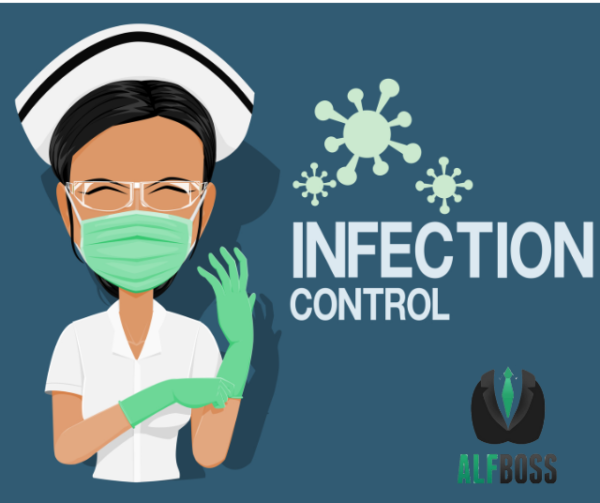
At the time of writing this article, America is facing a pandemic as we have never seen before. COVID-19 has been responsible for 447,715 deaths in the United States alone. Many administrators and directors of nursing had never imagined Infection Control would be at the forefront of our daily planning. If you adhere to the following regulation you will be sure to avoid potential issues with not just COVID-19, but many other infectious diseases:
111-8-63-.23 Infection Control and Sanitation
(1) The assisted living community must have an effective infection control program that includes, at a minimum, the following:
(a) training provided to staff on effective measures for minimizing the spread of infections and foodborne illnesses;
(b) responding to disease outbreaks appropriately and participating in infection control investigations;
(c) staff demonstrating their understanding and use of proper infection control practices in their delivery of care to the residents; and
(d) enforcing work and return to work policies to minimize the spread of infection and illnesses.
(2) The assisted living community must have an adequate supply of sanitizing and cleaning agents, e.g. effective hand hygiene products, hand soap, laundry soap, household disinfectants, and other cleaning materials, available and used in the assisted living community to minimize the spread of infections.
(3) Toilet tissue, soap, hot and cold running water, and clean towels must be available for use wherever commodes are located.
(4) The assisted living community must have a supply of first-aid materials available for use. This supply must include, at a minimum, gloves, band-aids, thermometer, tape, gauze, and an antiseptic.
(5) The storage and disposal of bio-medical and hazardous wastes must comply with applicable federal, state, and local rules and/or standards.
(6) Solid waste that is not disposed of by mechanical means must be stored in vermin-proof, leak-proof, nonabsorbent containers with close-fitting covers until removed. Waste must be removed from the kitchen at least daily and from the premises at least weekly.
(7) An insect, rodent, or pest control program must be maintained and conducted in a manner that continually protects the health of residents.
(8) Residents’ private living spaces or bedrooms must be thoroughly cleaned and sanitized after residents move out of the rooms.
(9) The assisted living community must clean the residents’ private living spaces periodically and as needed to ensure that space does not pose a health hazard.
Top Takeaway:
(1) The assisted living community must have an effective infection control program that includes, at a minimum, the following: A-D
When developing an infection control program be sure to set sustainable processes that all team members can be knowledgeable of. It would be prudent to review and tweak these policies quarterly to determine if there are any weaknesses you can improve on.